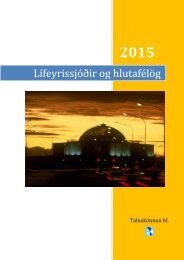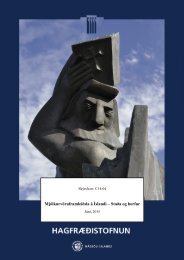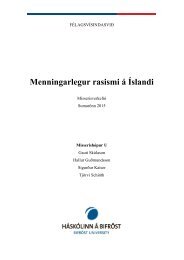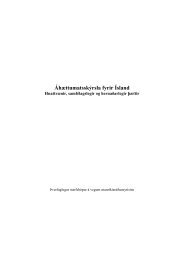You also want an ePaper? Increase the reach of your titles
YUMPU automatically turns print PDFs into web optimized ePapers that Google loves.
WORLD REPORT 2016<br />
HUMAN RIGHTS WATCH<br />
lagization program,” a government effort to relocate 1.5 million rural people into<br />
permanent villages, ostensibly to improve their access to basic services. Some<br />
of the relocations in the first year of the program in Gambella region in 2011 were<br />
accompanied by violence, including beatings and arbitrary arrests, and insufficient<br />
consultation and compensation.<br />
Some Gambella residents filed a complaint in 2013 to the World Bank’s Inspection<br />
Panel, the institution’s independent accountability mechanism, alleging<br />
that the bank violated its own policies on indigenous people and involuntary resettlement.<br />
The Inspection Panel identified major shortcomings in the PBS program<br />
in its November 2014 recommendations, although the World Bank Board<br />
largely rejected the findings in February. A translator who worked with the Inspection<br />
Panel in Gambella was arrested in March and charged under the Anti-<br />
Terrorism Proclamation in September 2015.<br />
In February, in the course of a court hearing on a complaint by an Ethiopian<br />
farmer that the UK violated its partnership principles by supporting the PBS program,<br />
DFID announced that it was ending support to the PBS program. DFID cited<br />
concerns over Ethiopia’s civil and political rights record, including concerns related<br />
to “freedom of expression and electoral competition, and continued concerns<br />
about the accountability of security services.”<br />
There are ongoing reports of forced displacement from development projects in<br />
different regions, often with minimal or no compensation and little in the way of<br />
prior consultation with affected, often indigenous, communities. Allegations<br />
have arisen from commercial and industrial projects associated with Addis<br />
Ababa’s expansion and the continued development of sugar plantations in the<br />
Lower Omo Valley, which involves clearing 245,000 hectares of land that is home<br />
to 200,000 indigenous people. Communities in Omo have seen their grazing<br />
land cleared and have lost access to the Omo River, which they relied on for<br />
crops. Individuals who questioned the development plans were arrested and harassed.<br />
Violent incidents, both between different ethnic groups and between the government<br />
and ethnic groups, increased in 2015 partly due to the growing competition<br />
for grazing land and other resources. The reservoir behind the Gibe III dam<br />
began filling in January 2015, reducing the annual natural flood that replenished<br />
the agricultural lands along the banks of the Omo River.<br />
Key International Actors<br />
Ethiopia enjoys strong support from foreign donors and most of its regional<br />
neighbors, based on its role as host of the African Union and strategic regional<br />
player, its contribution to UN peacekeeping, security and aid partnerships with<br />
Western countries, and its progress on development indicators. The African<br />
Union(AU)—the only international body that monitored the May elections—declared<br />
the elections “credible” despite the severe restrictions on opposition political<br />
parties, independent media, and civil society.<br />
Ethiopia continued to facilitate negotiations between warring parties in South<br />
Sudan, and its troops maintained calm in the disputed Abyei Region. Ethiopia<br />
deploys troops inside Somalia as part of the AU mission, and in 2015 there were<br />
growing reports that abusive “Liyu police” forces were also deployed alongside<br />
the Ethiopian Defense Forces. Ethiopia continued to host hundreds of thousands<br />
of refugees from South Sudan, Somalia, and Eritrea.<br />
Ethiopia is one of the largest recipients of donor aid in Africa, receiving almost<br />
$3 billion in 2015 despite allegations of human rights abuses associated with<br />
some development programs, including forced displacement in Gambella and<br />
the Omo Valley. There are no indications that donors have strengthened the<br />
monitoring and accountability provisions needed to ensure that their development<br />
aid does not contribute to or exacerbate human rights problems in<br />
Ethiopia.<br />
242<br />
243










